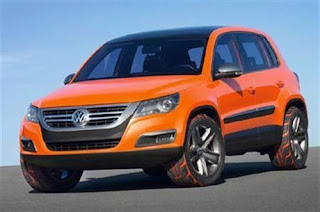There’s something slightly weird about this scene. We are about to drive the daunting 12.9-mile Nürburgring Nordschleife track in Germany. In a Lexus. Okay, it’s the exotic LFA, a Ferrari-fighting supercar that will cost about $350,000. But the company built its reputation on smooth, refined, and perfectly nerve-calming cars, so why does the LFA exist? In what parallel universe is this thing remotely Lexus-like?
Lexus claims multiple justifications for the LFA program. The car, it says, casts a halo over the Lexus F line of performance machines. It’s also a way for Toyota to explore new technologies, particularly carbon-fiber construction. And since Lexus says it will be selective about whom it will sell to—car collectors and high-profile individuals who use the car rather than park it—the LFA should raise the cachet of the brand as a whole.
For all that marketing happy-talk, the 2012 LFA is a serious outlier in the Lexus lineup and has had a convoluted gestation. The program started in 2000, and Lexus showed the first concept car at the Detroit auto show in 2005. Next, a convertible version appeared at Detroit in 2008, though it has since been canceled. In the interim, LFA prototypes were spotted testing at the Nordschleife, and further, two race-prepared cars entered the 24-hour race at the Nürburgring in 2008 and 2009. But until now, the company hasn’t said anything about production intent. Lexus is finally ready to admit that a mere 500 will be made, with production starting in December 2010.
Although the car is extravagantly expensive, Lexus says it will lose money on every one. We believe it. The last car that incorporated a similar level of technology, performance, and exclusivity was the $650,000 Ferrari Enzo. At $350,000, the LFA begins to look like something of a bargain. The LFA is an exotic, two-place, front-engine, rear-wheel-drive coupe. The chassis and body are made largely of carbon-fiber composite, just like those of an Enzo or a Mercedes SLR McLaren. Per Lexus’s scales, the car weighs 3263 pounds—less than a Corvette ZR1.
The engine is a 4.8-liter V-10 codeveloped with Yamaha. It’s a compact unit that makes 553 horsepower at 8700 rpm and revs to a giddy 9000 rpm. Maximum torque of 354 pound-feet peaks at 6800 rpm, with 90 percent available between 3700 and 9000 revs.
The rear-mounted, six-speed automated manual transaxle incorporates a Torsen limited-slip differential. Control arms comprise the front suspension, with a multilink arrangement at the back. To keep weight down, the suspension pieces and the remote-reservoir monotube KYB dampers are aluminum.
The Brembo carbon-ceramic brake setup consists of discs 15.4 inches in diameter and six-piston monoblock calipers up front, with 14.2-inch discs and four-piston calipers at the back. Forged aluminum 20-inch BBS wheels sit inside bespoke 265/35 front and 305/30 rear Bridgestone Potenza tires. There are four driving modes: automatic, normal, wet, and sport; the driver can also select manual shift speeds. In sport mode, the stability-control system allows for greater amounts of yaw, but the system can be switched off completely.
When it comes to the styling, there’s a definite Japanese aesthetic, what with all the sharp edges and matte-black vents. But it’s not a head turner like the Enzo or even a Lamborghini Gallardo. We definitely wouldn’t order one in matte black—one of 30 available colors—because it looks like someone forgot to paint it properly.
But there is function underpinning the somewhat sedate form. According to chief engineer Haruhiko Tanahashi, an advantage of using carbon fiber for the bodywork is that it’s possible to make very sharp edges and cutoffs that improve aerodynamic performance. The LFA has a reasonably low coefficient of drag (0.31), and Tanahashi says that the car produces more downforce than any of its competitors. Even the inside edges of the door mirrors are shaped to guide air into scoops over the rear fenders that feed the rear-mounted radiators. A large rear wing incorporating a Gurney flap pops up at speeds above 50 mph.
The interior is restrained but tasteful. The car we drove had a mixture of supple leather, carbon fiber, Alcantara, and “satin metal” adorning the cockpit. Lexus will offer seat coverings in 12 shades of leather or 10 alternate hues of Alcantara, with three color choices for the Alcantara headliner. “Roomy” describes the cabin, although luggage space is minimal. The supportive bucket seats have eight-way power adjustments, and the driving position is superb. The minor controls are as easy to find and use as in a standard Lexus sedan, and the LFA even has the same mouse-style operation for its multifunction center-console screen as in an RX350 sport-ute.




